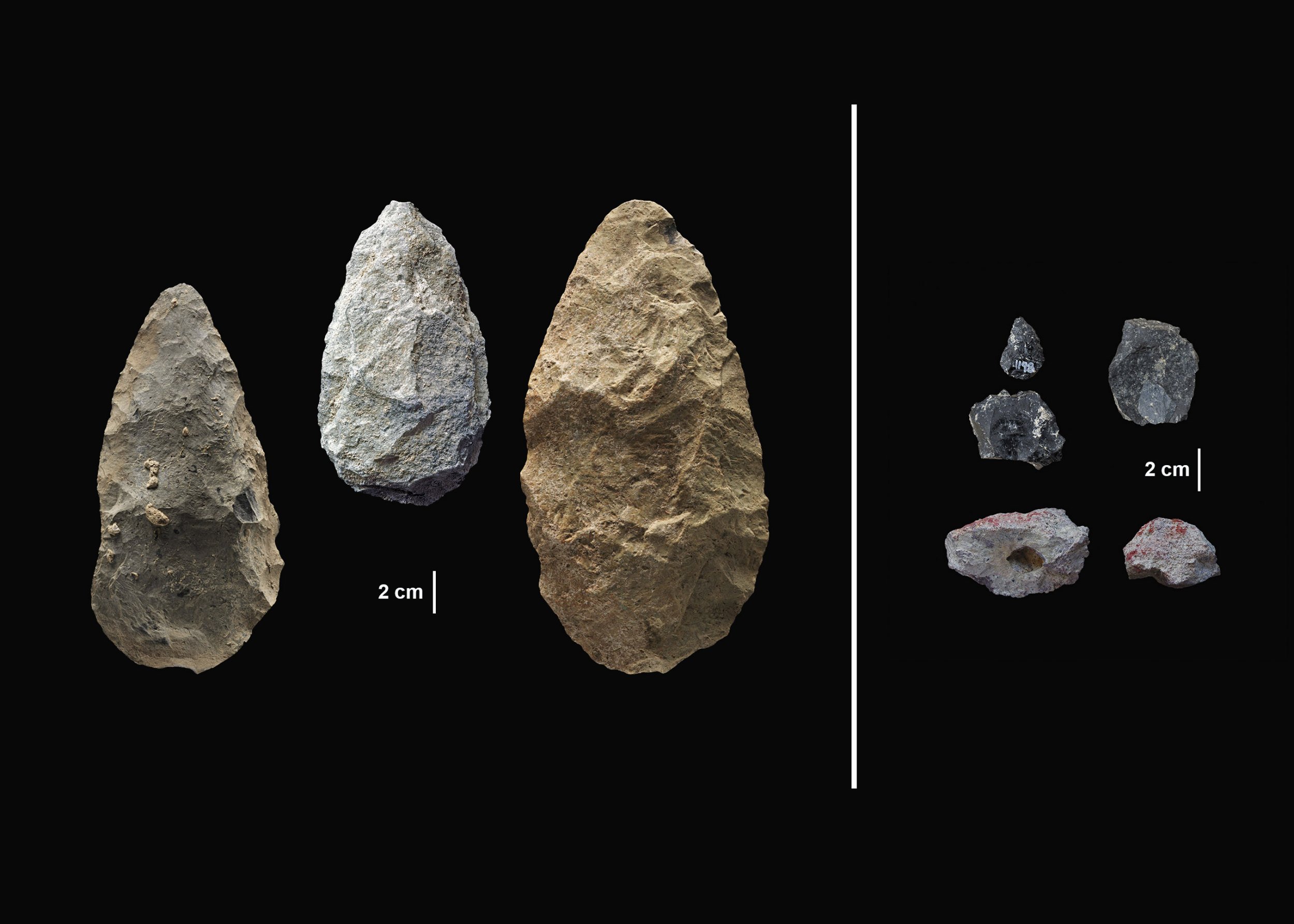
Coloring utensils and other tools found in eastern Africa reveal humans likely became sophisticated much earlier than scientists previously thought, according to new research.
An international team of archaeologists believe that some of the materials were gathered miles away from southern Kenya's Olorgesailie Basin site, which may indicate social networks were formed about 320,000 years ago—100,000 years earlier than previous estimates.

In one of the three studies published Thursday in the journal Science, the team discussed the exchange of materials, including obsidian, an indigenous rock formed by volcanoes.
"The obsidian transport and the collection and processing of pigments imply an early development of social networks connecting members of our species," Alison Brooks, study author and an anthropology professor at The George Washington University, said in a statement. "This practice is characteristic of our species, but in contrast to our closest primate relatives, and is not implied by the material record of the preceding early Stone Age levels at Olorgesailie."
Thousands of tools have been found at the archaeological site in the past, but they looked much different. The tools were larger and not as carefully crafted as the new ones. In another one of the three Science publications, the researchers discuss extreme environmental changes—including earthquakes and long periods of drought—which could have likely caused early humans to change their lifestyles and the tools they used.
Related: Ancient Egypt: Pieces of King Ramses II statue found in the Temple of Kom Ombo
"This change to a very sophisticated set of behaviors that involved greater mental abilities and more complex social lives may have been the leading edge that distinguished our lineage from other early humans," Rick Potts, study author and director of the Smithsonian Human Origins Program, said in a statement.
One belief among the scientific community is that life evolved gradually as the environment shifted; however, based on their new findings, Potts and his colleagues believe the shift was much more rapid.
Uncommon Knowledge
Newsweek is committed to challenging conventional wisdom and finding connections in the search for common ground.
Newsweek is committed to challenging conventional wisdom and finding connections in the search for common ground.





